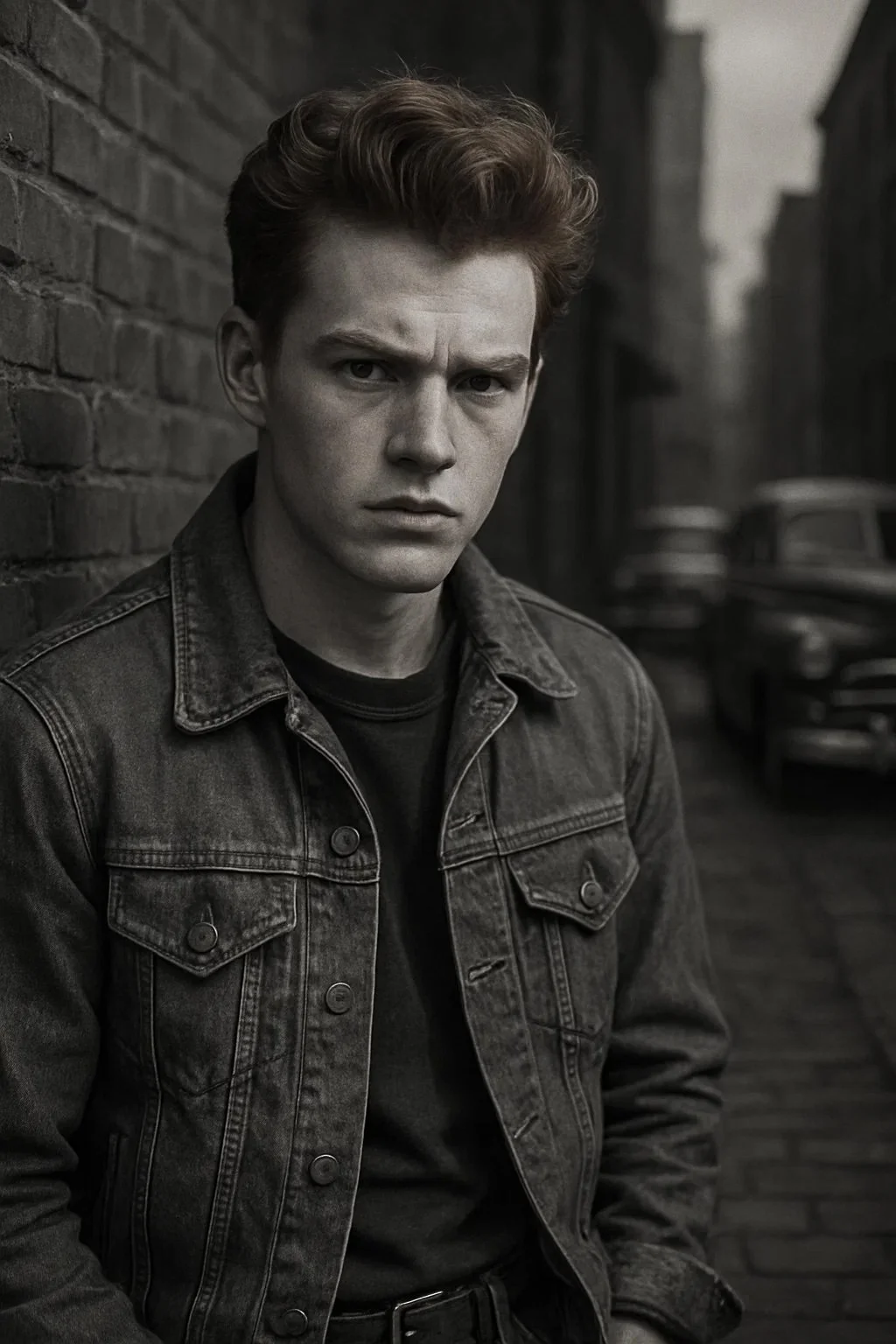ROLL, RUSSOLO, ROLL
Composer. Conduit. Conductor. Cult Icon.
Though bonded to Mitchell Joy since fingerpaint and fire drills, Reed Russolo was never part of the gang — not really. Not in any way that mattered. In childhood games of “Cowboys and Indians” Reed often cast himself as a Welsh druid. While the other kids were in the street kicking cans Reed was in the garage building a ham radio to contact Bulldog Drummond. To call him “ahead of his time” would be a polite fiction. In truth, Reed seemed to live perpendicular to time — always a few frequencies removed, humming along some occult wavelength that only the very old and the very young could hear.
A misfit? Perhaps. Or maybes just a modern mystic without a circle — waiting for the world to tilt at just the right angle.
That angle came after Erik’s vanishing act — a folkloric absence still debated in esoteric psyche zines and pop culture cabals alike — when Mitch and Coco, half-mad from grief and guilt and haunted flashbacks, turned to the recluse in the hills: a soundtrack composer known more for his arcane tape manipulations than anything resembling rock & roll.
What followed was less a comeback than a ritual — a resurrection hidden in the trappings of an album cycle. Reed didn’t just join The Get Quick; he channeled the dark undercurrent that their music had always evoked. Under his guidance, the band’s sound became wider, deeper, ritually encoded.
Studio bookings were aligned with lunar calendars. Metronomes were set at precisely 93 BPM. Studio sessions began with sigil-burnings and ended with Reed performing psychic “tone-cleansings.”
Those who were there speak of unexplainable things: amps that hummed in sympathy with his thoughts; tape reels that rewound themselves when Reed stared too long; a dark-eyed woman who appeared in every mirror in Studio B when his mellotron track was solo’d.
The albums? Critics and fans, initially skeptical, fell like dominoes in growing adoration of the band’s creative rebirth. An exciting new chapter, a golden age for The Get Quick — but a gilded cage for Reed himself.
Because just as the band ascended back into the spotlight, Reed began to recede. Not physically — he was there, fronting the band, sure — but something in him had already passed through the veil.
Was he devoured by the frequencies he conjured? Did he transcend to the audible plane, communing with the music of celestial spheres? Or was it something simpler — something sadder — the story of a holy sonic druid who gave too much of his soul to the machine?
No one knows. But play those records, late in the dark of night, with the clouds low and the music loud, and you might catch him —
For a moment —
Tuning back into you.
— Mark Question, 2007
